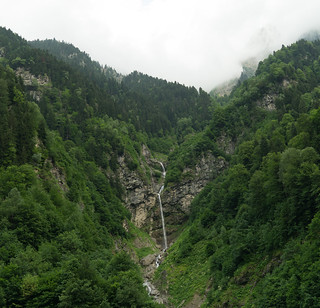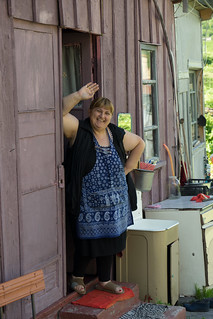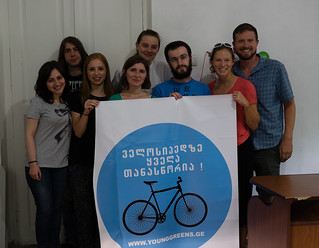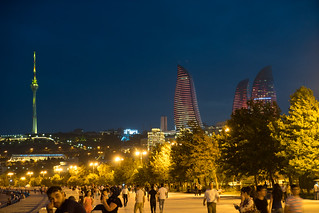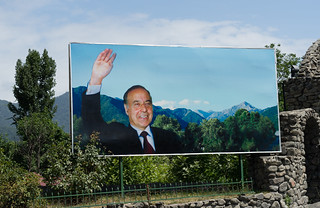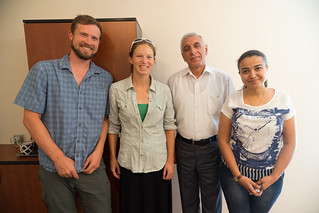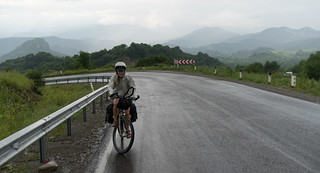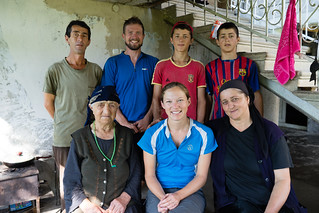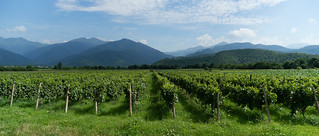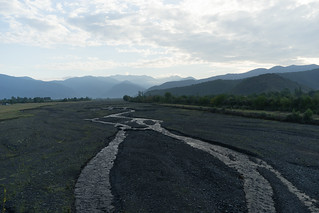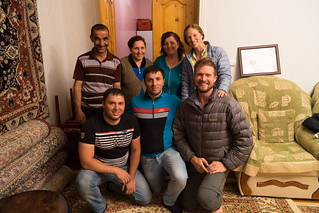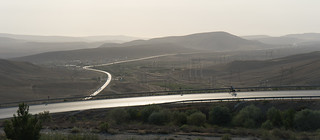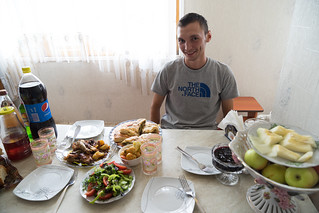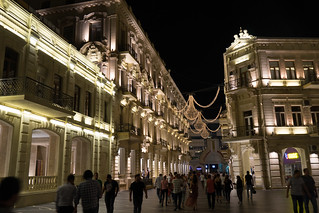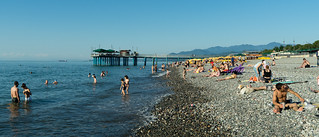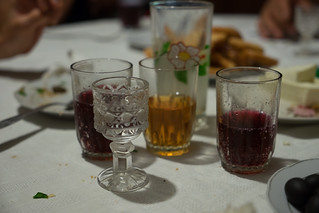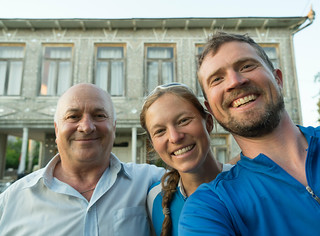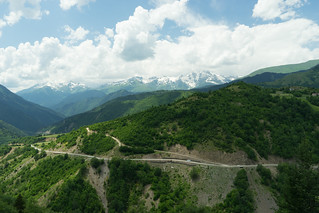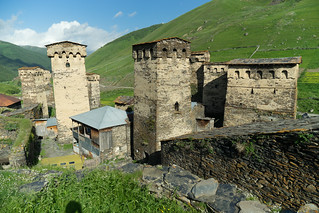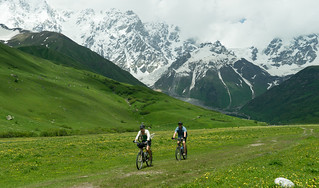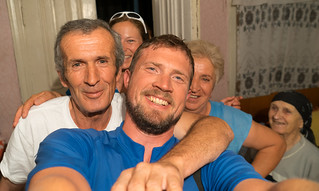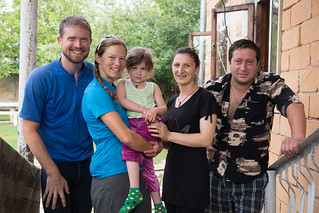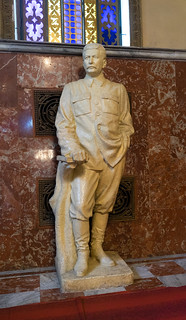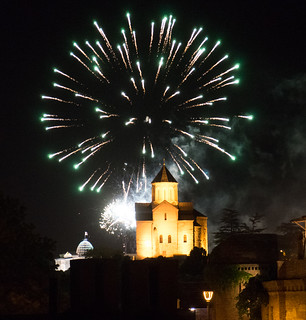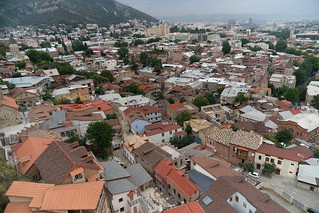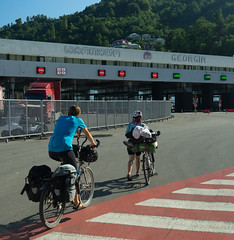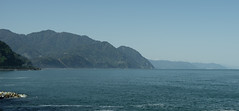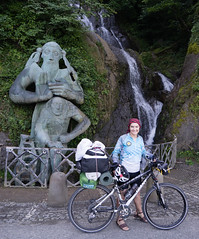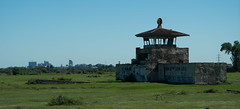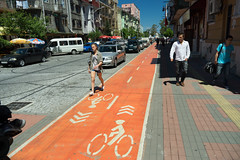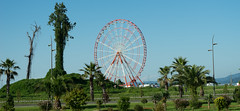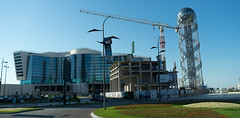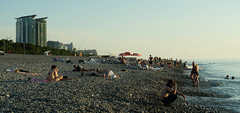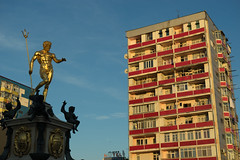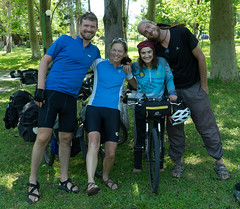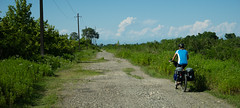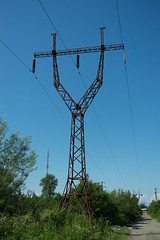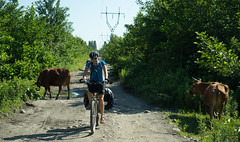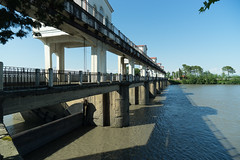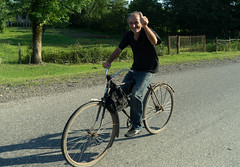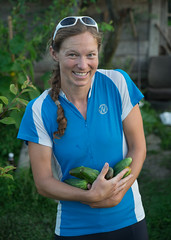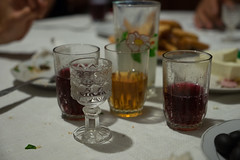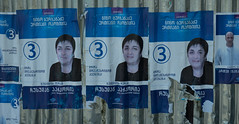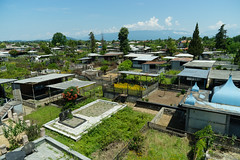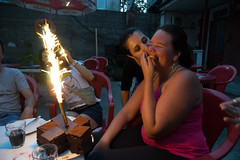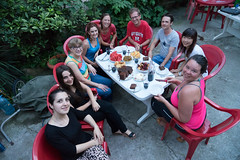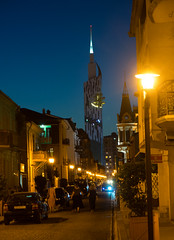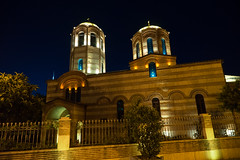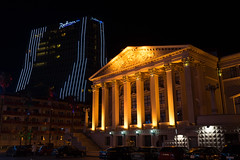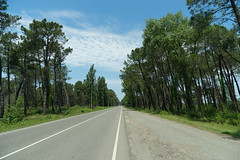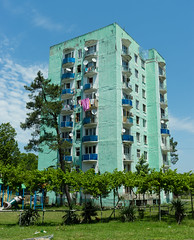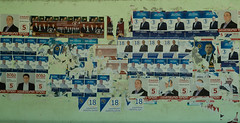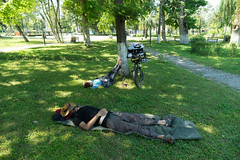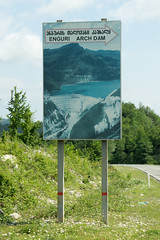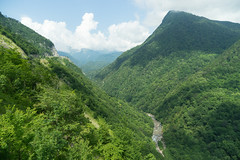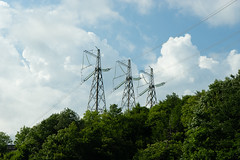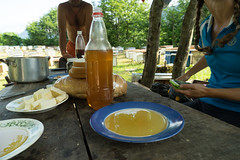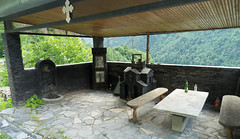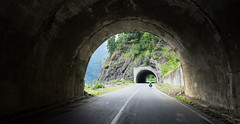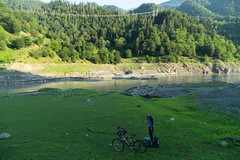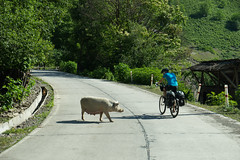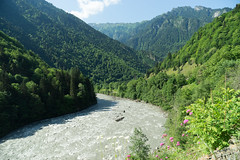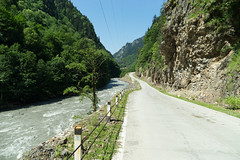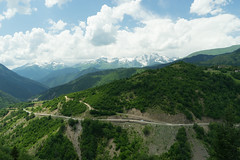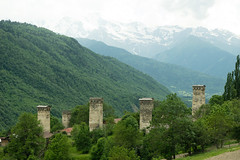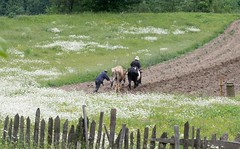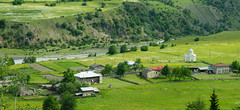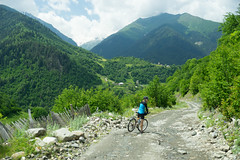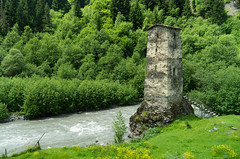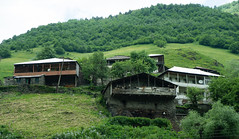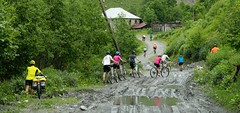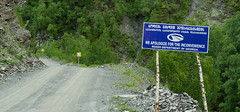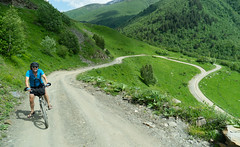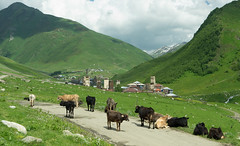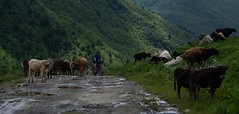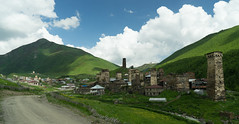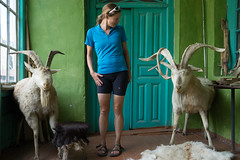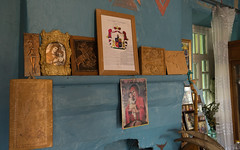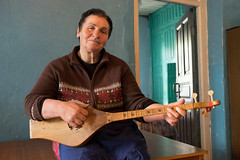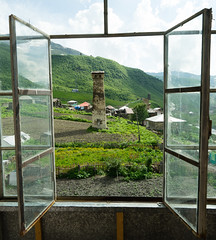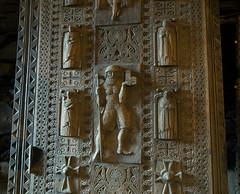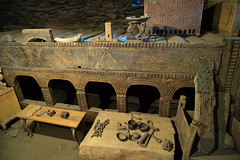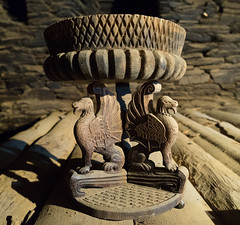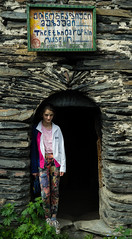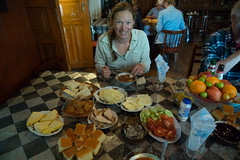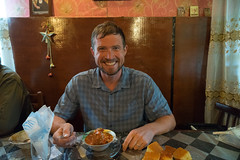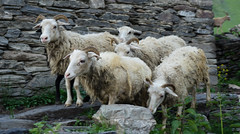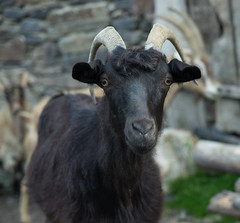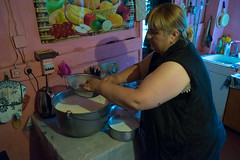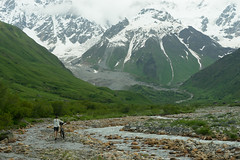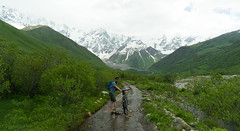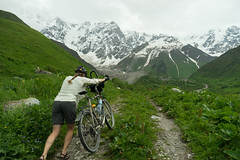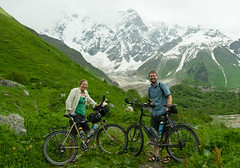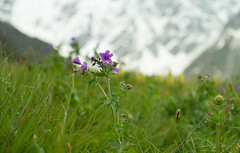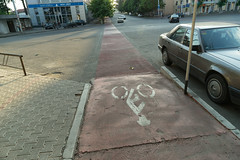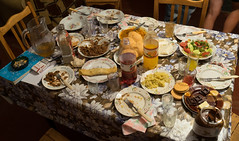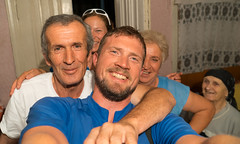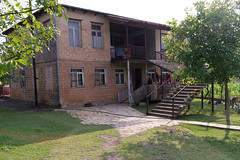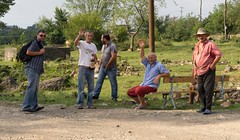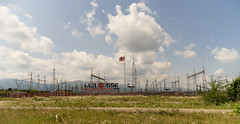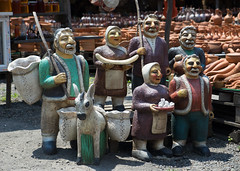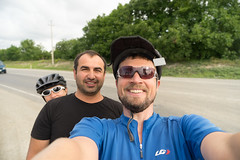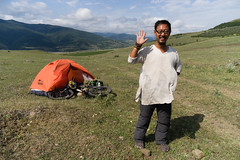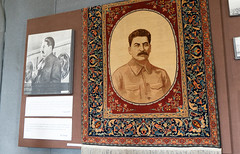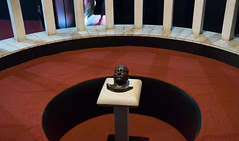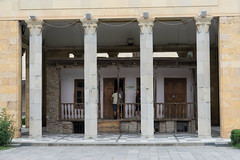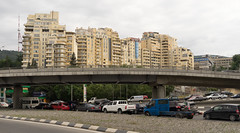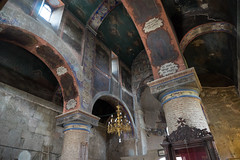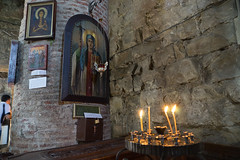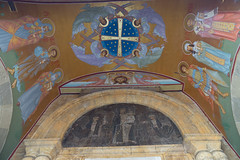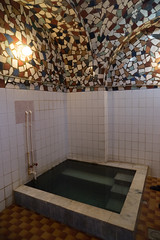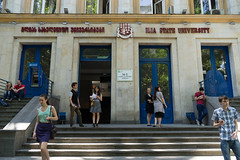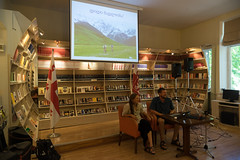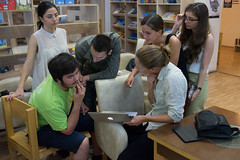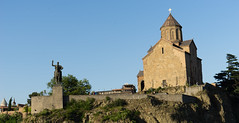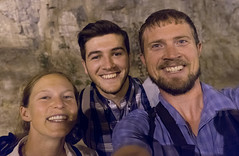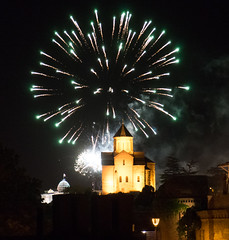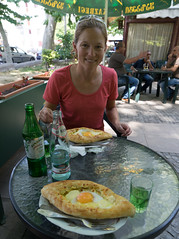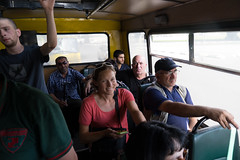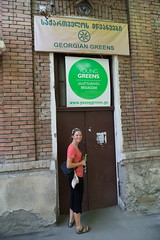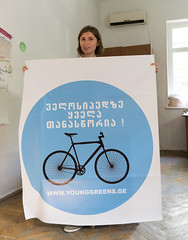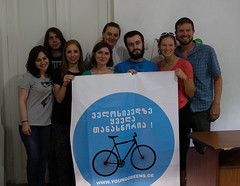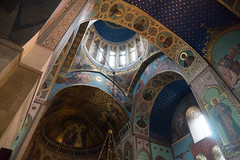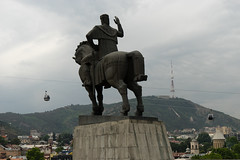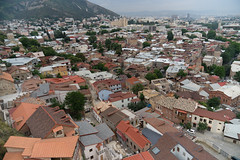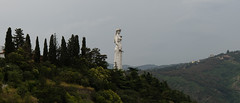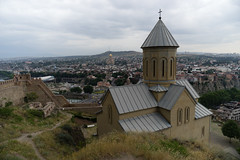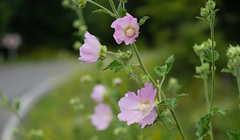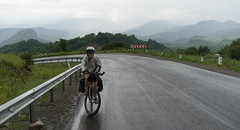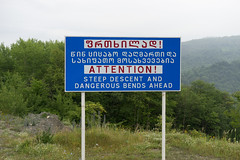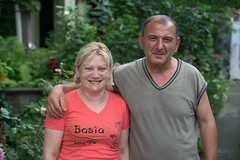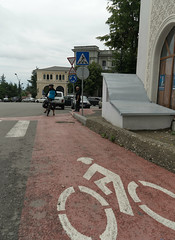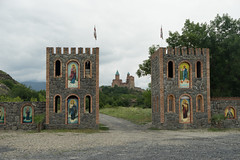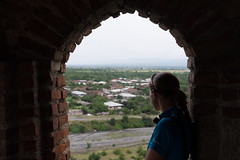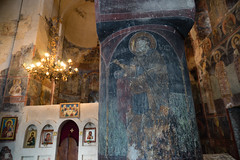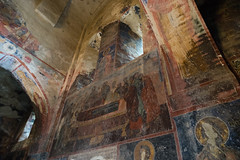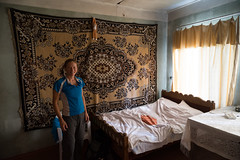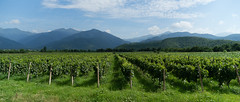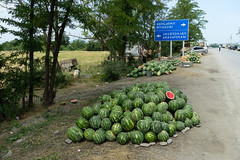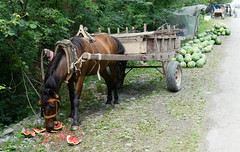Crossing Georgia and Azerbaijan, we conducted fewer interviews and did less research than we did in Turkey. That was partially by design – we wanted to focus on Turkey and Central Asia, and Georgia and Azerbaijan just happened to be between these regions. Nonetheless, we still interviewed experts and lay people, and did some basic online research on the climate issues in the region. Here’s what we found.
Georgia is one of the few countries on our route that does not (yet) have serious water quantity issues. The western part of the country, and especially the mountains, receive significant rainfall and snow. This also meant that the water was clean and good to drink everywhere we traveled – and in the mountains, a fresh spring could be found in almost every village. The eastern part, and especially the southeast (which we didn’t visit) is drier, and might be facing water shortages in the future, according to a professor we talked with in Tbilisi.
Through translators (and Google Translate), we asked a few laypeople if the climate had changed where they live (Are winters warmer or colder than they used to be? Are summers warmer or colder?). One man near the Black Sea said there was no difference in temperature, but that it rained more than it used to (he said it was because of a nearby reservoir that had been built in the 1960s). In the mountains of Svaneti, we interviewed the man who operated our hotel, as well as his wife and mother. All agreed that winters were far milder than they once were, and that there is now less snow. The man, Davit, said that weather was more unpredictable, and that it made it more difficult for farmers. In contrast, his wife and mother said that life was much easier now because the winters were not as hard. Another family in central Georgia agreed that winters are warmer than they used to be, but they didn’t think it had much of an impact on their lives.
In Tbilisi, we spoke with academics at Ilia State University, where we also gave a presentation on our trip, and with the “Young Greens,” a youth political activist group promoting progressive social and environmental policies. We asked both groups what they thought were the most pressing environmental problems in Georgia. The two groups mostly agreed. The biggest problems, they say, are deforestation and waste management. Climate change did not make the list, although a professor at Ilia State said that desertification was becoming a bigger problem in the country’s southeast.
In Azerbaijan’s countryside, we spent even less time talking to people than in Georgia – we biked five days without visiting many towns, and staying with only one family (who we were unable to ask about climate change – or rather, our limited-English translator couldn’t understand what we were asking).
Azerbaijan’s economy is dominated by oil. Entering the country, I wanted to know if oil was good or bad for the nation. I asked this question the last time I crossed an oil-producing country, Venezuela, and I was surprised how un-nuanced the answer was: oil clearly seemed bad for Venezuela’s politics and economy, as counterintuitive as that seemed. (See the Venezuela chapter of The Bicycle Diaries.) Venezuela seemed struck by The Curse of Oil.
Was Azerbaijan struck by the same curse? The answer seemed mixed, and more nuanced. Azerbaijan’s economy has done very well over the past decade; there are countless new buildings in the capital, Baku, and we witnessed little abject poverty, although admittedly we didn’t go to the more remote areas. However, while people we spoke with mentioned poverty as a big problem, and country data indicates that some certainly exists, the same data show that there is less poverty than in Venezuela, which corresponds with our observations. When I asked people in Venezuela if oil was good for the country, most (surprisingly) said no. In Azerbaijan, one person said “it is a blessing” for the nation, and nobody flat out said it was bad, although some mentioned pollution as a problem. It felt, based on our interactions, like the country was doing economically well, and it was due to oil. Politics, though, is a different question.
In Azerbaijan, we were greeted in almost every town, by a picture and statue of the country’s now deceased Communist leader, and then president, Heydar Aliyev. It actually reminded me of Venezuela, where I had seen pictures of Hugo Chavez everywhere. Before Heydar died, he named his son as his successor, and his son is now the president. In theory, there are elections. In practice, the country imprisons journalists, and elections are far from free. One person we talked to told a story about how, when he was in the army, he went to vote and he and his fellow soldiers received ballots that were already filled out. He asked for a blank ballot – which they gave him after carefully recording his name. Freedom House gives the country extremely low ratings on civil and political freedoms. While oil may not be directly at fault, oil money lines the coffers of the government and its officials, making it easier for the government to be less accountable to its people.
The few people we talked to in English suggested that climate change is an issue that is rarely talked about in Azerbaijan. When we asked our host what people in Azerbaijan thought about climate change, he said “’tis not a topic, actually,” although he said it was more of an issue in Turkey (Turkey and Azerbaijan speak almost the same language, Azerbaijanis watch Turkish television, and the two countries are very close diplomatically). Others agreed that it wasn’t an issue that people talked about – and, perhaps as revealing, they didn’t seem to know much about the basics of climate change.
We spoke to two professors in Azerbaijan about climate change and water issues. The main takeaway from these conversations were that the country currently suffers from both too much and too little water, a problem that climate change will exacerbate. The Kura River runs through the country, draining large portions of Armenia, Georgia, and Azerbaijan. In the winter and spring, flooding is not uncommon, as there are few dams on the river to regulate the flows from snowmelt in the mountains and rain in the lowlands. In the summer, the water dwindles until there is very little flowing through the rivers – we saw this in the nearly dry tributaries as we rode through the Kura Valley in early July. This is a serious problem, as about half of Azerbaijan’s population relies on agriculture, which is dependent on irrigation. Already, the timing of water availability has shifted, with more water in the spring due to earlier snowmelt and rivers drying up earlier in the year. People are noticing the change, he said, but don’t know what is causing it. This change in the hydrograph is projected to continue and worsen with climate change.
One of the most interesting things we learned from these interviews was that an important reservoir – the Sarsang – is in Nagorno-Karabakh, the portion of Azerbaijan currently under Armenian control. We were told that water is being released from the reservoir in the spring, when it is not needed and causes flooding, and then held during the summer, denying people of water needed for irrigation. As a result, Azerbaijan has lost 120,000 hectares of productive land due to a politically caused water shortage.
We also talked a bit about Azerbaijan’s energy supply and use. Ninety percent of the country’s energy comes from fossil fuels (although ironically, long before we saw our first oil well, we saw a few wind turbines and solar farm). As the economy grows, people are using more energy, most of which comes from natural gas. There is a plan to install more alternative, sustainable energy sources, including small hydropower plants on the rivers, but people understandably question why the country should invest in renewables when oil and gas are so cheap.
As with Turkey, we were left with more questions than answers. People in Georgia and Azerbaijan are not very well informed about climate change, which, given its likely impact on agriculture in both countries, seems like a problem. But we also aren’t sure what people should do with this heightened awareness. Georgia’s domestic energy production comes from hydropower, and their population is quite small. Azerbaijan has huge fossil fuel resources, and how can we say “ you shouldn’t develop that?” Perhaps efforts are best put into adaptation, with the hope that some of Azerbaijan’s oil can stay in the ground longer – and fetch a higher price – if the rest of the world agrees to slow down its pace of consumption







